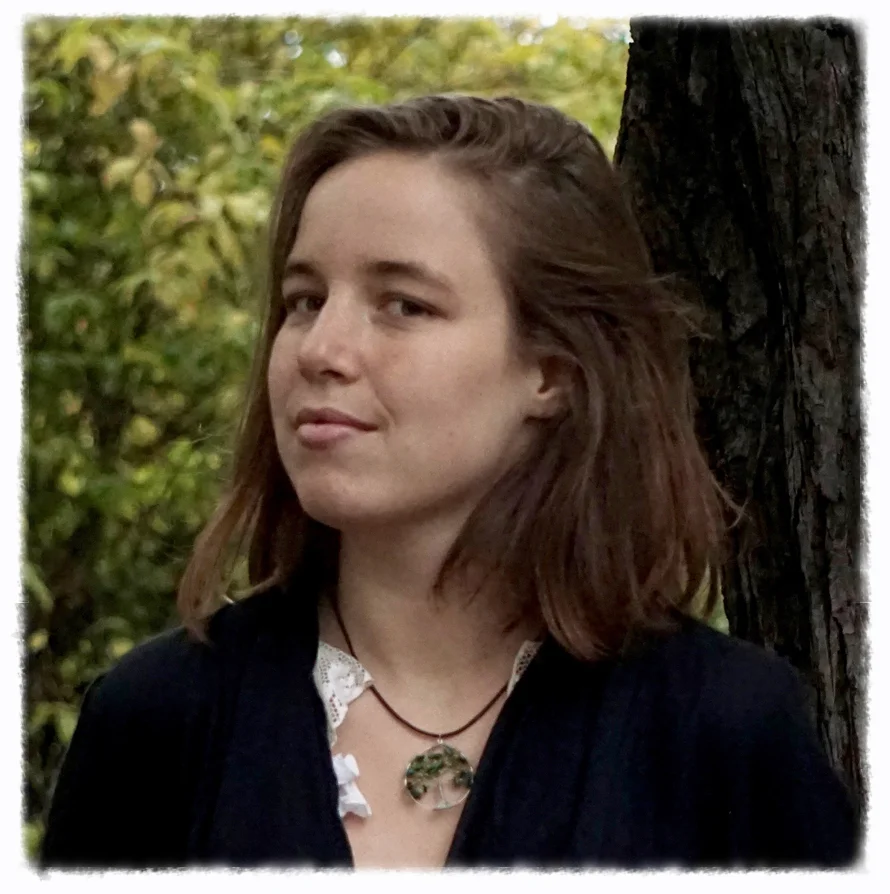Abraham —Aisha Down
At first, to be a herder of goats—
early morning, breaking from the tamarisks
into the thrown stones of sun: smells of water,
the animals shifting among themselves
like a landslide, like the great eroding boulders
of days. The plan, then: new pastures
paced on copper hills, a charred stump
to mark the site of the well. The increase of bodies
(grass seeds struggling through the weave
of your garments), the warm wind of years.
How many plans now have you laid,
how many nights stood in the mirror,
testing your theory, that this is the city,
this the bed, these the lines into which
your watery face will settle itself?
In one plan, you’re a perfume-maker,
your bed smells of vinegar and sandalwood,
in another, you cut your hair and eat
only oranges, in another you paint lions
on the crumbling walls of the palace
and give them pomegranate seeds for eyes.
How many nights now sat at the laid table—
wine again, water again, and projected yourself:
you laying the bricks of foundation, you wearing
brass and leather, you speaking darkly
to the gathered crowd? We summon these dreams
to give measure to the promise made to us—
but the dreams are torn silk, flawed vessels,
and the promise beats on in our bones
and bowels, and it never sought a measure.
So the palace fell. An earthquake like an April wind
scattered the jaws of the lions through the market,
amid split oranges under a hard blue sky.
A wildfire took the sandalwood grove,
whole cities were burned, others swallowed
by the earth, and one in which you’d planned
to make luxury goatskin head coverings
was quietly disassembled in the night,
leaving only the fig tree under which you’d slept.
Still you dreamed, vaguer and brighter
as the years went, luminous forms to carry you
into the centuries: shoemaker, minstrel,
husband, butcher of goats. Still you woke,
to smoke and the char of the offerings
again, to the broken halves of animals
under the churning entrails of the stars.
You grew older, profligate and patient and waiting,
you became—who doesn’t?—a history of false starts
and half-made vessels, of years of evenings
and the conversation of strangers, of the spring wind
blowing from the east over unturned earth.
Nothing but a broken vessel can praise
what it cannot hold. Nothing to do, really,
but recline here—wine again, figs again,
as an early moth scorches in the oil lamp
and the talk pauses, as the smoke rises and curves
against the last swell of light. And here—
how the years grow darker, thickening
into the silt of the wine. The bitternesses:
rivers and clotted rivers, the loves:
clear hours, salt crystals blooming at the heart.
When the time comes, we will understand
that nothing we made or dreamed was the preparation,
but only its breakage, that no promise of eternity
grows from us, but rather is planted in us
until it must be planted elsewhere.
Or, as is written, Abraham’s son never spoke to him again,
never saw him again. Abraham led his donkey
back to his vineyard, to Sarah, and the dusk
smelled unbearably like mesquite, tamarisk, seed.
All night he dreamed, and in the dream
a million people burned dust into brick
and brick into spires, and the people were lions
and they had his brow. In the morning, woke
wanting nothing but a jug of cold water.
I am trying to say that we die this way, broke open,
that our cracked forms walk the earth laughing,
that nothing we understand about ourselves
is carried into the years, that the shattering
is the repeating, endlessly, of our names.
Carrie O. Adams
Jennifer Bullis
Toi Derricotte
Kelly Dolejsi
Aisha Down
George Eklund
Michael Hettich
Julie Swarstad Johnson
Gregory Kimbrell
Kate LaDew
Frannie Lindsay
Kimberly Miller
Daniel Edward Moore
Sean F. Munro
Matthew Murrey
Tolu Oloruntoba
Sarah Pape
Lawrence Raab
Elizabeth Robinson
Aaron Smith

